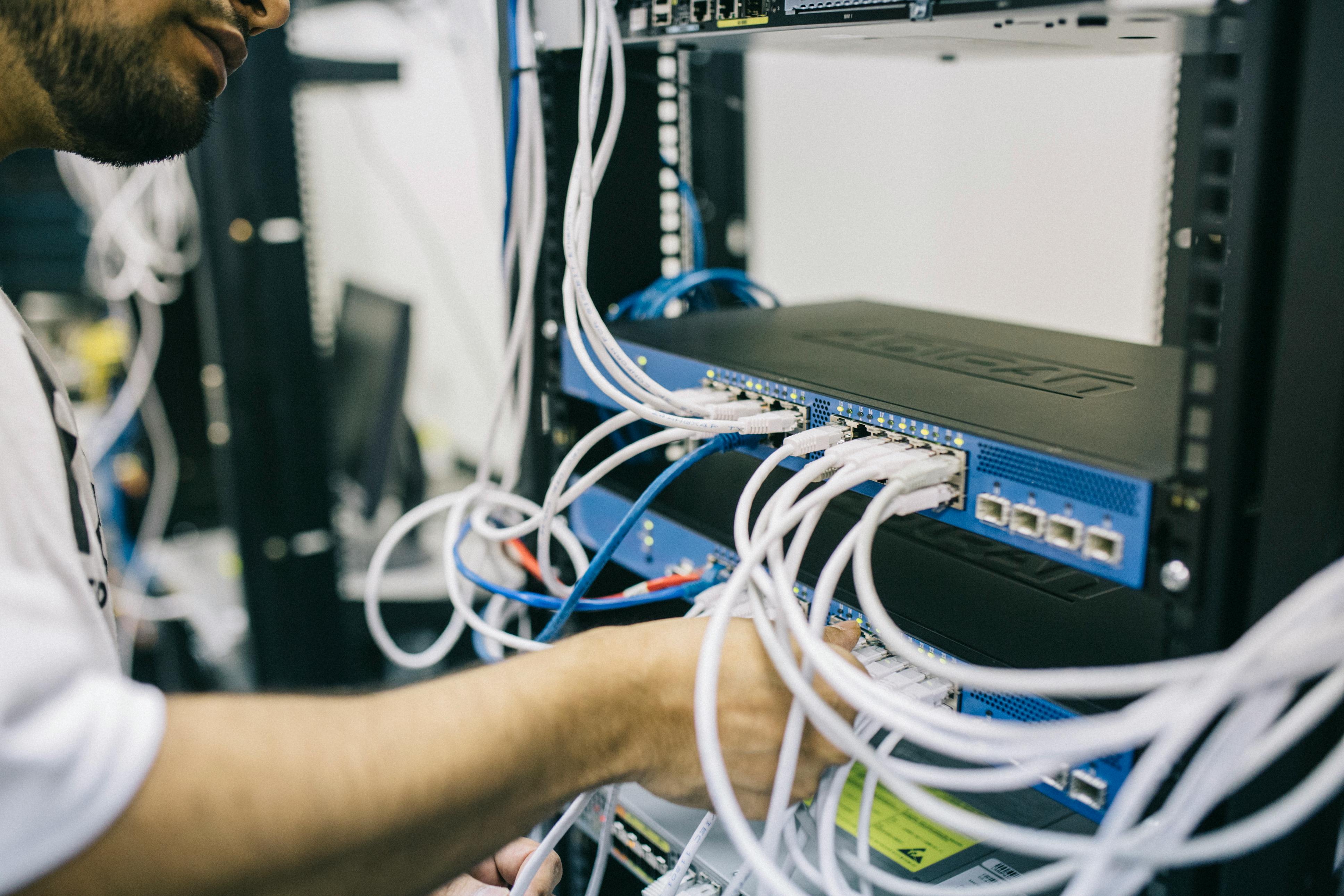Guide – Firewalls - When You Need to Upgrade Your Router (and Why It Matters)
2025-08-05

Source: Photo by Field Engineer Pexels
TL;DR: If you have insurance, compliance requirements, or more than one Wi-Fi network, you probably need a real firewall—not just a router. This guide explains why, what to look for, and how to make the right call for your organization.
Not every organization needs a firewall. But if you handle sensitive data, have cyber insurance, or want to follow modern security standards, a basic router won’t cut it.
Do You Need a Firewall?
- Do you store or process payment, health, or donor data?
- Do you have cyber insurance or are you required to meet HIPAA, PCI-DSS, or CJIS?
- Do you have more than one Wi-Fi network (e.g., guest and staff)?
- Do you have smart devices, security cameras, or anything you can’t install antivirus on?
If you answered yes to any of these, you need a real firewall—not just a router.
Why Isn’t My Current Router Good Enough?
Most consumer and “prosumer” routers are honestly pretty good for home use. They offer parental controls, basic dashboards, and sometimes even VPN features. But for a nonprofit or small business, the real gap is logging and visibility. If you ever need to prove what happened on your network—whether for an insurance claim, a grant audit, or just peace of mind—home gear won’t cut it. You need to know what’s happening, and you need records to back it up.
Real-World Example: Why This Actually Matters
Let’s say you run a small business. You have a few laptops, a printer, and a couple of smart devices. One day, a volunteer plugs in a USB stick with malware, or someone’s phone connects to the Wi-Fi and starts acting weird. With a basic router, you’ll never know. There’s no alert, no log, no way to see what happened. You’re not trying to be a cybersecurity expert—you just want to keep your data safe and be able to answer questions if something goes wrong. That’s where a real firewall makes a difference: it gives you the visibility and proof you need, without making you paranoid or overwhelmed.
What a Real Firewall Gives You
- ✅ Deep Packet Inspection (DPI): Looks inside the traffic, not just ports
- ✅ Threat Intelligence: Blocks known bad IPs and behaviors
- ✅ Logging & Alerting: Gives proof for audits and incident response
- ✅ Geo-Blocking: Blocks traffic from risky countries
- ✅ Segmentation: Separates guests, cameras, and workstations
- ✅ Outbound Filtering: Controls what internal devices can talk to outside servers
- ✅ Cloud Management: Lets your IT team manage things remotely
- ✅ VPN Support: Secure remote access to internal systems
Firewalls to Actually Buy
💡 These prices are for hardware only. Most models below require separate licensing for features like threat prevention, logging, web filtering, and support. Licenses usually come in 1, 3, or 5-year bundles. Expect to spend $300+ per year on licensing—or over $1,000 for multi-year bundles.
- Fortinet FortiGate 50G
- Price: ~$450-$595
- Full UTM, logging, cloud management, DPI
- FortiCloud logging and Management
- Sophos XGS 108
- Price: ~$520–$700
- Skip XGS 87. Solid Central integration + storage
- WatchGuard T25 / T45
- Price: ~$400–$600
- Great compliance logs and cloud control
- Firewalla Gold SE
- Price: ~$299
- NGFW-lite. Geo-blocking, DPI, alerts. Great for micro orgs
- Netgate 4200 (pfSense+)
- Price: $599
- No built-in cloud mgmt, but full control and advanced routing
- Requires technical admin comfort—this is not plug and play
💡 Pro tip: Ensure logging is enabled and retained long enough to satisfy your cyber insurer. Some firewalls don’t retain logs without extra licensing.
What to Ask Your MSP or IT Provider
- Will this firewall keep logs for at least 1 year?
- Does it support remote management and alerting?
- Can it segment my network (guests, IoT, staff)?
- Does it have DPI and threat intelligence feeds?
- Will it meet my insurance or compliance requirements?
What Insurance and Compliance Actually Require
| Requirement | Who Enforces It |
|---|---|
| Outbound filtering | PCI-DSS, Cyber Insurers |
| Audit logs | HIPAA, SOC 2, Insurance |
| Network segmentation | PCI-DSS, CJIS |
| Threat response & logging | Cyber Insurers |
| Remote VPN access control | CJIS, HIPAA |
TL;DR: If you can’t prove you protected your network, your claim may be denied or you may be fined.
Final Thoughts
A firewall isn’t about faster Wi-Fi; it’s about accountability, visibility, and segmentation. It’s what lets you say: “We saw it. We stopped it. We logged it.”
If you handle payment data, health records, donor info, remote access, or answered “yes” to any cyber insurance questions, you need a real firewall—not just a shiny router.
Need help or just want to know more? Contact us →